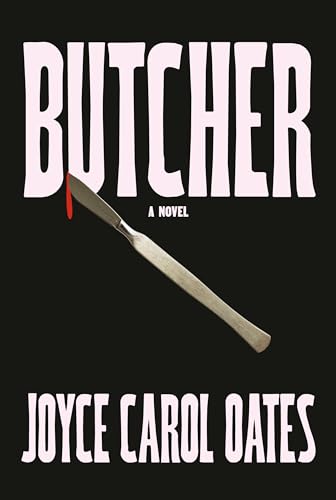Butcher
One of America’s most prolific authors returns with a harrowing tale of a demented “doctor” who preys upon women neglected by the state in a mid-19th century New Jersey asylum. Basing her work on authentic historical documents, Oates tells the story of Dr. Silas Aloysius Weir, an ambitious yet deeply damaged man who, after botching a procedure, is shuttled off to head the medical department at the New Jersey Asylum for Female Lunatics. There, his psychotic loathing of the female body—and his lack of proper medical schooling—result in grotesque and horrific experiments upon wards of abandoned, helpless, and mentally ill patients. His decades’ long reign of terror earns him the name “Red-Handed Butcher” among the female patients, but to the world outside Weir garners national renown as the “Father of Gyno-Psychiatry.” If that term sounds terrifying, it is, and Oates does not skimp on the gag-inducing details.
The novel is a fascinating portal into 19th-century medical notions of female diseases and various afflictions, which Oates researched thoroughly. She incorporates episodes from the lives of three historic medical practitioners of the era into her portrayal of Weir, who takes a shine to one patient—the “deaf/mute” Irish orphan, Brigit Kinealy—and makes her his “assistant” to his unending litany of diabolical experiments. Brigit is a courageous and resilient character who elevates the novel above a mere horror show, as she begins to question both Weir’s abilities and intent.
Butcher is one of Oates’s strongest titles of late, combining pitch-perfect historical details, dialogue, and an unusually happy ending (for Oates). This is superb literary and historical fiction that educates about benighted and misogynistic understandings of the female anatomy in antebellum America. Highly recommended.










